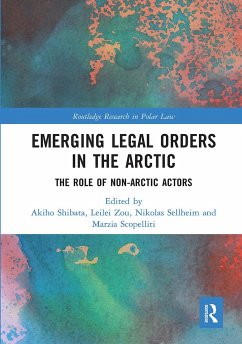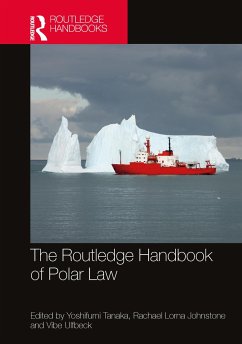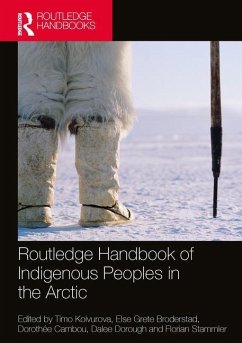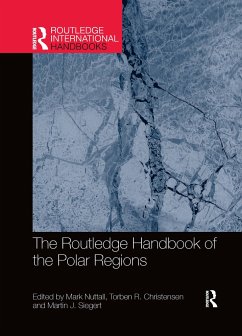
Philosophies of Polar Law

PAYBACK Punkte
77 °P sammeln!
Analysing the most important concepts and problems of the philosophy of polar law, this book focuses on the legal regimes relating to both the Arctic and Antarctic.The book addresses the most fundamental concepts and problems of polar law, looking beyond the apparent biophysical similarities and differences of the two polar regions, to tackle the distinctive legal problems relating to each polar region. It examines key legal-philosophical areas of the philosophy of law around legal interpretation; the role of nation states, reflected in concepts of territorial sovereignty - whether recognised ...
Analysing the most important concepts and problems of the philosophy of polar law, this book focuses on the legal regimes relating to both the Arctic and Antarctic.
The book addresses the most fundamental concepts and problems of polar law, looking beyond the apparent biophysical similarities and differences of the two polar regions, to tackle the distinctive legal problems relating to each polar region. It examines key legal-philosophical areas of the philosophy of law around legal interpretation; the role of nation states, reflected in concepts of territorial sovereignty - whether recognised or merely asserted, the exercise of jurisdiction, and the philosophical justifications for such claims; as well as indigenous rights, land rights, civil commons and issues of justice.
The book will be of interest to students and scholars of polar law, land law, heritage law, international relations in the polar regions and the wider polar social sciences and humanities.
The book addresses the most fundamental concepts and problems of polar law, looking beyond the apparent biophysical similarities and differences of the two polar regions, to tackle the distinctive legal problems relating to each polar region. It examines key legal-philosophical areas of the philosophy of law around legal interpretation; the role of nation states, reflected in concepts of territorial sovereignty - whether recognised or merely asserted, the exercise of jurisdiction, and the philosophical justifications for such claims; as well as indigenous rights, land rights, civil commons and issues of justice.
The book will be of interest to students and scholars of polar law, land law, heritage law, international relations in the polar regions and the wider polar social sciences and humanities.














